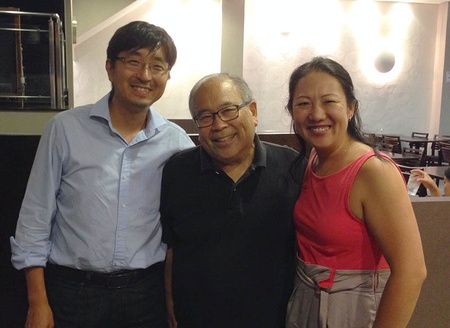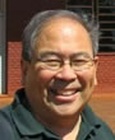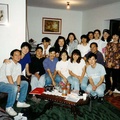Language acquisition is tricky.
Before I began working in South America, I had a couple of opportunities in the early 1990s to visit Brazil and do some investigation and research to see if a career change was something I really wanted to do. During my first trip, as I brought my visit to a close, I wanted to make some souvenir purchases. I wanted to buy a tee shirt with “Brasil” and a design of the green and blue flag emblazoned across the front.
Two girls from a local church in the city of São Paulo took me shopping. Their English was minimal and my Portuguese was non-existent. I wanted to buy that tee shirt, but didn’t know the word.
I knew that collared dress shirts were called “camisas.” In Portuguese, the way you make a word diminutive is by changing the ending to “inha” (pronounced “een yah”). I knew that because of my friend, Edison de Rosa. His nickname was Rosinha. His surname, “Rose” became a nickname, “Little Rose.”
So based on that very limited information, I told the girls that I wanted to buy a “camisinha.” My logic was that because “shirt” was “camisa,” then a “little shirt or tee-shirt” would be “camisinha.” Unfortunately for me, the word I created was the word for condom!! The girls had a look of shocked surprise on their faces. “Ohh, Pastor John,” they exclaimed.
I was a pastor, after all. It was a good thing that we were already standing in front of the store and I was pointing at the tee shirt in the store window, so they got the meaning. Because they didn’t know how to explain it, and I didn’t know what I said, it wouldn’t be until weeks later after I got home that I learned from a former Brazil missionary what I had said. By the way, the word for tee-shirt is “camiseta.”
Retaining word meanings is also complicated when words sound similar. Or when words are learned together. I remember that in 1994, I was interviewed by a television station in the city of Campo Grande, Brazil. The big news was the arrival of our JEMS volleyball team in that city. Of those representing JEMS in that group, I was the only one who knew a little Portuguese. It was certainly not enough to be speaking on local TV, but they insisted.
During the interview I explained that the team was there to participate in a tournament with other Nikkei (ethnically Japanese) groups/teams in the city. We would be playing against the Holiness Church, the Japanese associations, the Okinawa kenjinkai, etc. The term I kept using was the word, torneira. It was my understanding that the word meant “tournament.” The word was repeated again and again: torneira de vôlei (volleyball tournament). The problem was that the word for tournament is “torneio.” The word I was using was the word for “water faucet.” I had announced repeatedly on the local television news that we were holding a “volleyball faucet.”
Brazilians are so kind. They told me. “It’s okay, pastor! Everyone understood.” Really kind.
Of course the worse kind of language mistake is that one that has the unfortunate double entendre. It might not even be correct to speak of the words as having a double meaning. Sometimes, it was a single, wrong meaning. Let me give an example.
Incomplete knowledge is dangerous. Often our teams were housed in the homes of friends or church members. I was welcomed into one home and given my own bedroom. On the bed were linens and blankets, but no pillow. The homestay “mom” didn’t speak English and I didn’t yet know much Portuguese. It was about 11 p.m. at night when I stepped out of my room to speak with her. I asked her if I could have a “traseiro.” It was in my mind that this was the word for pillow. Her jaw dropped. But then she laughed as I made the gesture of my head resting on my two hands. She understood my meaning. To be clear, the word for pillow is “travesseiro.” The word I used was the equivalent of a crude, vulgar word for a woman’s backside.
It’s unclear why language mishaps occur with words that potentially create the most embarrassment. I suppose it wouldn’t be a good story otherwise.
I think about this as I undertake a Spanish language intensive this summer. I will be living in Asunción, Paraguay for the month of August doing a full immersion program. If language mix-ups were common for me in Portuguese, I should have new stories to share after my Spanish program! Let’s wait and see!
© 2014 John Katagi







